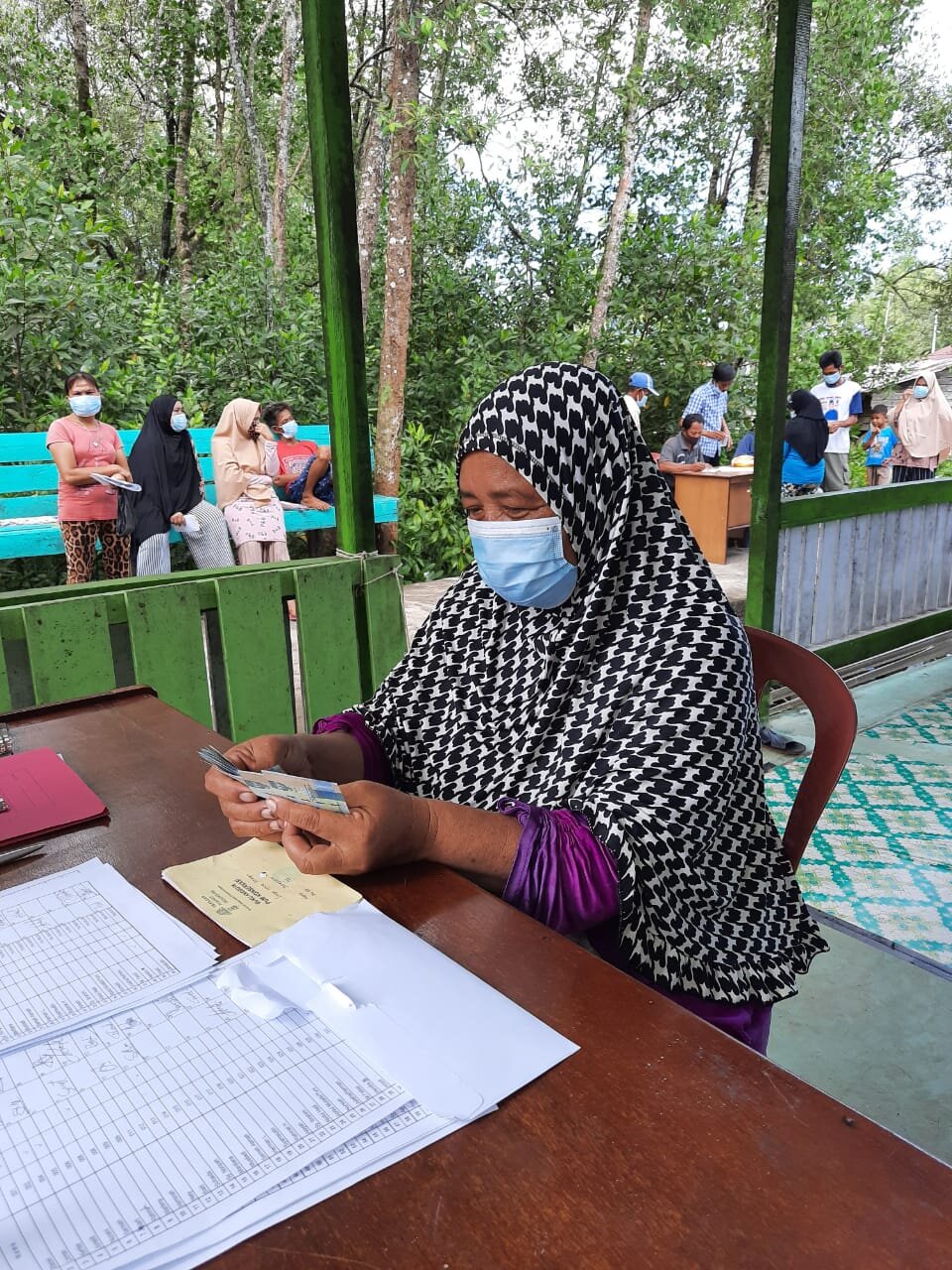Building community resilience during the COVID crisis
The ongoing COVID-19 Pandemic continues to disrupt communities all over the world, especially those already experiencing inequalities. Food insecurity, access to education, and access to health programs are becoming more difficult as communities experience serious disruptions in their local economies through rising prices of basic commodities like groceries. This can often lead communities to unsustainable natural resource exploitation in an attempt to overcome the social and economic costs of the COVID-19 Pandemic.
As travel restrictions tightened and markets shut down, in July of 2020 we conducted a series of rapid baseline surveys, to determine if and how our partner communities' livelihoods were most affected by the pandemic and in what areas they needed the most support. The data showed the overwhelming majority (89%) of households in our Guning Nyiut Nature Reserve cooperative site (GNNR) stated that they were negatively affected by a downturn in economic activities. As nearly 80% of GNNR households are dependent on agriculture for livelihoods and 78% of households only have a single source of income, these rural communities were facing exceptional socio-economic adversity.
Therefore in order to support our partner communities, as well as to continue protecting the rich biodiverse habitats in which these communities live within, we established a Conditional Cash Transfer program. This program was developed to provide emergency relief funding to our partner communities in the Guning Nyiut Nature Reserve (for 860 households) and among coastal communities in Kubu Raya (for 519 households) to provide economic stability in uncertain times.
In total, we delivered over $100,000 US Dollars to families in need of economic relief. After the funds were delivered, in October 2020 a post-funds survey was conducted, to determine how the money was spent. In both locations, the welfare funds were primarily used to cover basic household needs, followed by education expenditures for children in communities and for business investments and savings for communities.
Fig 1. The percentage of individuals in communities that used Conditional Cash Transfer funds on the different good and services
By evaluating this data and more in-depth data around the use of these funds in relation to gender and location, we have a deeper and more nuanced understanding of how multiple factors brought on by the global COVID-19 Pandemic are affecting our partner communities and now are in a position to better support their developing community needs. We are confident in our ability to adapt and realign our program strategy to account for these adverse effects and continue to carry out our mission.
Our commitment to a needs-based approach is what makes our innovative programs so impactful. Despite the vast chaos this pandemic has created, Planet Indonesia is responding to needs and delivering transformational solutions that benefit both people and nature. Our work has already demonstrated to have had positive impacts in both reducing biodiversity loss and combatting socio-economic inequalities.
In order to find a path through the disruption this virus has caused, globally, it is time to refocus on far-sighted solutions to biodiversity loss, planetary health, rural poverty and restoring the integrity of social-ecological systems. Holistic community-led conservation has the potential to offer a preventative solution to these global issues, as it is ultimately positioned to create healthy sustainable relationships between society and nature conservation.





